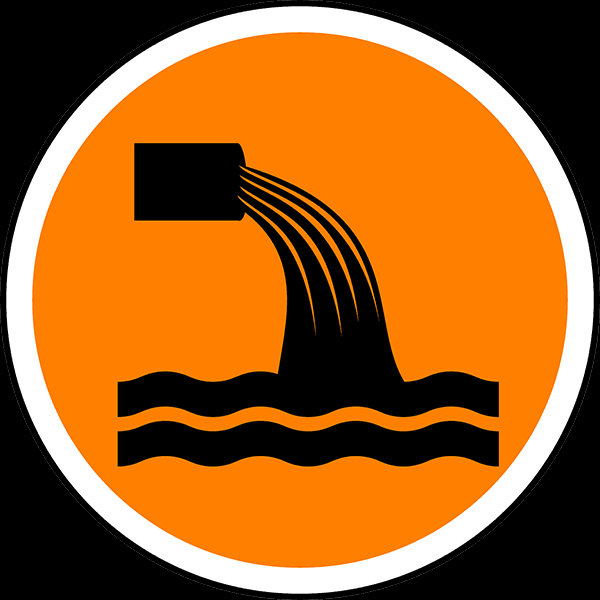3 Simple Techniques For Reclaim Waste
3 Simple Techniques For Reclaim Waste
Blog Article
How Reclaim Waste can Save You Time, Stress, and Money.
Table of ContentsFascination About Reclaim WasteAn Unbiased View of Reclaim WasteThe smart Trick of Reclaim Waste That Nobody is DiscussingAn Unbiased View of Reclaim WasteGetting The Reclaim Waste To Work
Explore the types, incidents, and forms of liquid waste. Residential sewage waste describes the waste and products from a domestic septic container. This kind of waste is created by people in houses, institutions, and other buildings. This only consists of septic systems that have a drainpipe field. The correct administration and disposal of domestic sewer waste require liquid waste to be transferred to a sewer therapy plant where the appropriate approaches and tools are applied to cleanse and get rid of waste.
Industrial waste usually consists of potential hazards, such as combustible products or a mix of liquid and strong waste items, and calls for an advanced and thorough disposal procedure. The disposal of commercial waste usually entails the purification of waste before transportation to make certain safe and proper disposal. Industrial waste is produced from by-products and overflow of industrial processes and manufacturing.
This type of waste can not make use of the very same sewer management transport or procedures as septic or business fluids. The hazardous waste administration procedure needs the examination and screening of fluid waste before it goes through the disposal process (liquid waste disposal melbourne). Runoff waste is the fluid waste that comes from overflow and excess stormwater in highly populated locations or cities
Overflow waste can trigger contamination and flooding if not dealt with correctly. Discover more about sewer cleansing and waste monitoring. Making sure appropriate waste administration can avoid disasters and lower ecological damage. Both individuals in residential setups and experts in commercial or manufacturing sectors can benefit from understanding the procedures and guidelines of liquid waste management.
The Facts About Reclaim Waste Revealed
Call PROS Services today to discover our waste administration and disposal solutions and the proper methods to look after the liquid waste you create.
(https://www.ted.com/profiles/48198485/about)This so-called 'wastewater' is not only an essential resource yet, after treatment, will be launched to our land, waterways or the ocean. Made use of water from toilets, showers, bathrooms, cooking area sinks, laundries and industrial procedures is known as wastewater.

water used to cool down machinery or clean plant and equipment). Stormwater, a kind of wastewater, is overflow that streams from farming and urban locations such as roofing systems, parks, yards, roadways, paths and rain gutters right into stormwater drains pipes, after rain. Stormwater streams untreated directly to regional creeks or rivers, ultimately getting to the sea.
The Main Principles Of Reclaim Waste
In Queensland, most wastewater is treated at sewage treatment plants. Wastewater is delivered from residential or commercial websites with a system of sewage systems and pump stations, called sewage reticulation, to a sewer therapy plant. Regional federal governments develop, preserve and operate most sewage treatment plants. Operators are licensed under the Environmental Management Act 1994 to discharge cured wastewater at an appropriate ecological requirement into waterways.
The Division of Natural Resources encourages regional governments concerning managing, operating and preserving sewerage systems and therapy plants. In unsewered locations, city governments might call for homeowners to install specific or family sewage therapy systems to deal with domestic wastewater from commodes, cooking areas, washrooms and laundries. The Department of Natural Resources authorizes making use of home systems when they are verified to be effective.
Most stormwater obtains no treatment. In some brand-new class, treatment of some stormwater to get rid of clutter, sand and gravel has actually begun making use of gross contaminant catches. Wastewater treatment occurs in 4 stages: Gets rid of solid issue. Larger solids, such as plastics and various other objects mistakenly discharged to sewage systems, are eliminated when wastewater is passed via screens.
Wastewater then moves into big containers where solids work out and are gotten rid of as sludge. Grease and residue are skimmed from the surface area. Utilizes little living organisms recognizes as micro-organisms to damage down and eliminate continuing to be liquified wastes and fine bits. Micro-organisms and wastes are included in the sludge. Removes nitrogen and phosphorus nutrients that might create algal blossoms in our waterways and endanger water life.
Getting The Reclaim Waste To Work
Nutrient elimination is not readily available at all sewage treatment plants because it calls for pricey specialist devices. Clear liquid effluent produced after therapy might still include disease-causing micro-organisms - industrial wastewater treatment.

This normally implies wastewater has to be dealt with or pollutants removed prior to it can be discharged to waterways. The majority of wastewater streams into the sewage system. Under the Act, city governments administer authorizations and licences for environmentally pertinent activities (Periods) including wastewater releases that may have a local influence. The division administers authorizations and licences to Periods including wastewater releases that could have a local or statewide influence.
Some Known Facts About Reclaim Waste.
Otherwise, samples are considered laboratory evaluation. Usually numerous tests are needed to establish the degrees of each of the various toxins such as oils, heavy metals and pesticides in water. Monitoring offers accurate details concerning water top quality and can confirm that licence conditions are being met. The information acquired via surveillance provides the basis for making water top quality choices.
Report this page